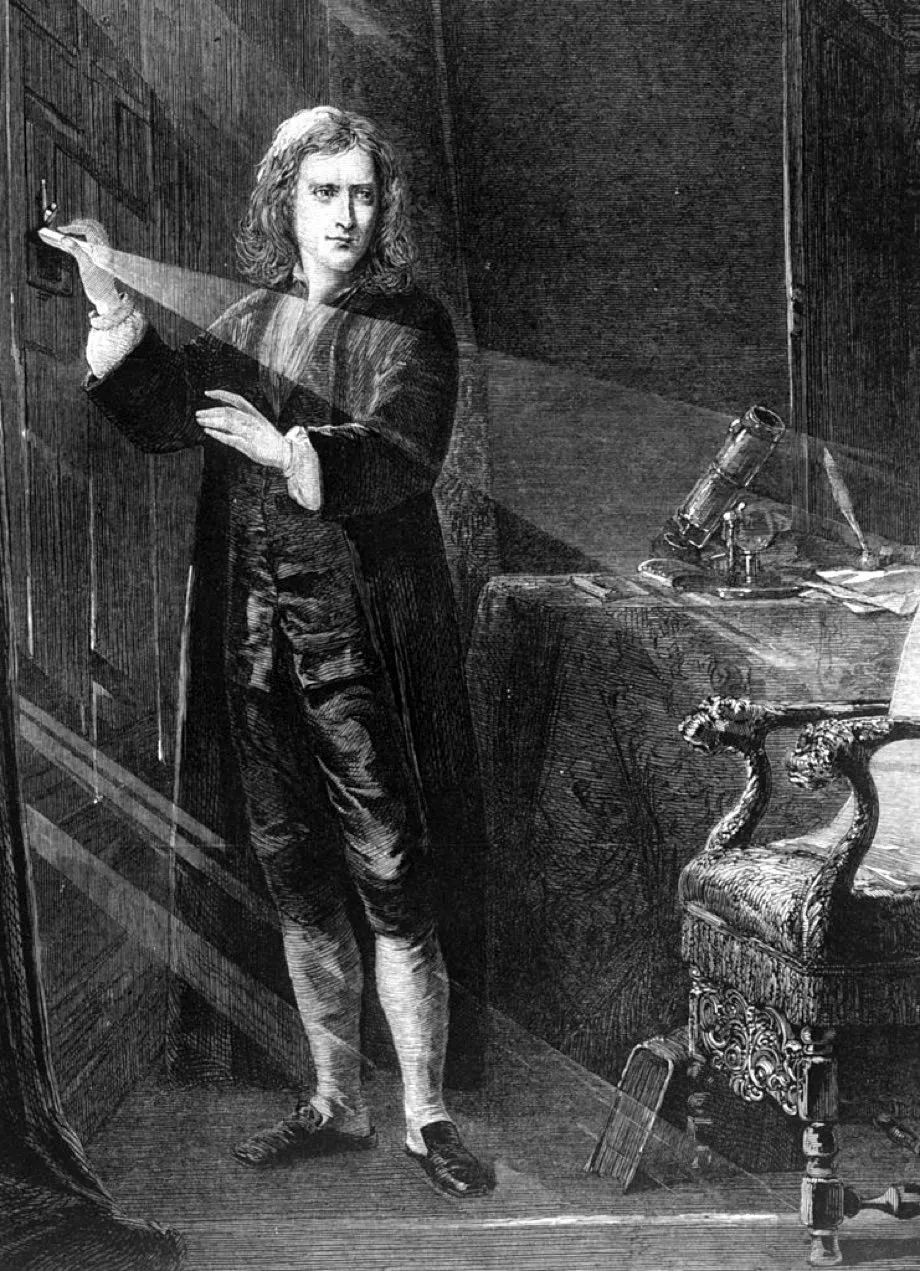OK, so we didn't conduct a séance to talk to one of the greatest scientists of all time. Sorry. This interview is completely imagined by Newton scholar Michael White, based on what we know of his own speech, writings and views. In this extract fromConversations with Newton, White imagines what the scientist might have to say about his legacy.
The work of Isaac Newton was truly revolutionary, sparking a transformative movement, which began in England some 60 years after his death before spreading across the world – the Industrial Revolution.
This was a paradigm shift in the history of civilisation, taking humankind from a state in which the main focus was agriculture and small-scale crafts to one in which industry, mechanisation and technology became paramount.
Newton’s experimental work and theories took science from being an almost exclusively cerebral activity and turned it into something practical, a discipline which increasingly benefits us all.
Some men wish to be remembered as “good”, others as people who have changed the world. Few can claim to have been both. How would you most like to be remembered?
I believe I have led a good life. I have been honest to my conscience, I have been honest to my Lord. I have devoted myself to the noblest causes, and I have achieved great things. I would rather be remembered as a man who made a difference. I know whether or not I have led a Christian life, and so does God. I care little for what other people may think about that.
What would you say was your greatest achievement?
I find it hard to differentiate between aspects of my work. To me it’s all one. My journey from the cradle has been one in which first I learned from my antecedents, then I tried to emulate them, and finally I surpassed them. I cannot say that my work in optics is any more or any less worthy than what I discovered about gravity or the behaviour of objects in motion.
Is my discovery of a practical form of calculus any more or any less significant than my telescope? I cannot say. Humanity being what it is, I imagine I will be remembered for the most trivial aspects of my work.

I sense you are very keen to preserve your reputation as an empirical scientist. I noticed in your answer that you didn’t mention alchemy or your researches into the nature of ancient religions or mysticism.
I have had to be secretive about these things all my life, and defensiveness is ingrained in me. I have instructed my closest friends and my – shall we call them “disciples”? – to destroy a large body of my work on alchemy and not to speak of my involvement in the arcane, even after my death.
I have devoted my life to the search for knowledge, and I have absolutely no shame concerning the methods I employed.
But I know the vindictiveness of people, and I know how my many detractors would love nothing better than to use my fascination with unorthodox subjects to damage my legacy.
Read more about great scientists:
- Wolfgang Pauli and the discovery of the Universe's most elusive particle
- Cecilia Payne-Gaposchkin: the first to describe what stars are made of
It seems to me that the greatest achievement for anyone is to do something which will benefit future generations, so that they are remembered and celebrated for what they have left the world. Do you imagine others taking your lead and using your discoveries for the benefit of humanity?
This is now my most fervent wish, but it was not always so. When I was young I sought knowledge for its own sake. I was perhaps more arrogant. As I have grown older, it has become more important to me that I be remembered for my work and that my achievements be used to improve the lot of mankind. I believe they will.
I have a feeling you’re right, Sir Isaac. Now, could you indulge me in one last question you may find trivial, but it’s one I’ve always wanted to ask you. Is the apple story true?
Ah yes, I’m surprised you didn’t get to that one earlier. Is the apple story true? Well, I’m sorry, young man, I’m afraid I’m going to have to disappoint you ... and leave you wondering!
Conversations with Newton by Michael White is out now (£9.99, Watkins).